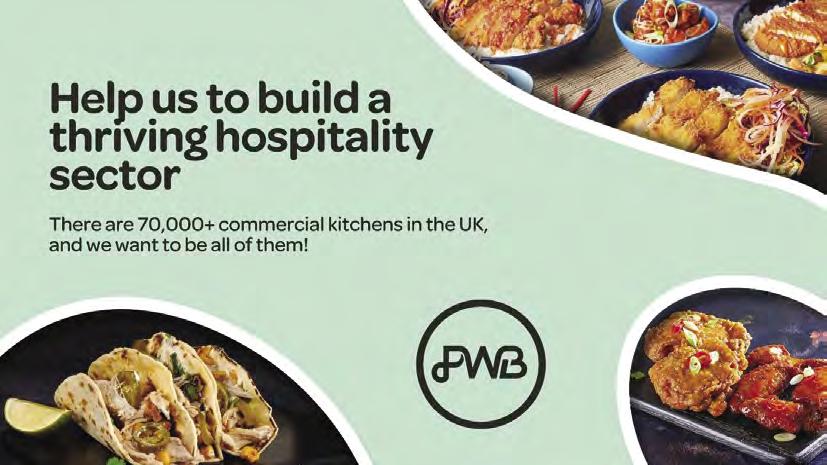
3 minute read
Are Chippies at Risk Saving icons of the British high streets


Advertisement
Are chippies at risk?
Saving icons of the British high streets
By Sam Martin, CEO of Peckwater Brands
Fish and chips shops – or ‘chippies’ – are a well-known staple of British cuisine and can be found in high streets throughout England and the rest of Britain. While their true origins are debated, they remain a beloved part of the UK’s diet.
However, the pandemic and the lockdowns that ensued have fundamentally changed the UK retail and hospitality landscape, leading to some fearing that the British high street is dying. Whether or not that claim is entirely true, our nation’s chippies are certainly at risk.
The key issues facing chippies today are economic and supply chain challenges. With CPI standing at 10.1%, not only are the costs of energy and ingredients rising due to inflation, but consumer spending power is lessened by the cost-of-living crisis, leading to a drop in revenues while overheads rise, harming profitability.
Another concern is the fallout from the Ukraine conflict, as 40% of cod and haddock, and 50% of sunflower oil comes from the region. What’s more, the costs of fertiliser for potatoes and the flour used in batter have also greatly increased in price due to the conflict, exacerbating the impact of inflation.
The chips are down
Between pandemics and staffing crises, UK hospitality businesses have shown astounding resilience and ingenuity in overcoming new challenges. To stand against the rising tide, chippies will need to be willing to adapt in order to survive.
A common tactic in recent years has been pivoting to delivery – Peckwater Brand’s research revealed that three-quarters of hospitality businesses relied on takeaway services to make it through the pandemic. To survive on the high street, chippies might need to start reaching people in their homes.
A key element of success not just in pivoting to delivery, but also in general, is embracing new technologies. Adopting smart POS solutions that enable Customer Relationship Management and data collection can increase any hospitality business’s operational efficiency, while also generating valuable data that can be used to monitor and understand consumer appetite and behaviours.
While technology can boost order volumes and increase efficiency, there will always be a limit to the demand for any one product. Chippies with kitchen capacity beyond what they’re currently selling should consider integrating virtual brands (food brands that exist only on third-party delivery aggregators such as Just Eat, Deliveroo and Uber Eats) into their operations in order to boost demand by offering other food besides fish & chips.
With the right partner, chippies can select a food brand that is compatible with their existing kitchen capacity and begin accepting orders for everything from Korean-style fried chicken to Mexican tacos. Our partners report earning an additional £12,103 – £57,687 a month after taking on at least one virtual brand, which would represent a lifeline to struggling chippies across the country.
Peckwater Brands (PWB) is a delivery franchising expert, which helps restaurants and kitchens of all sizes benefit from the fullest demands of the market by streamlining the process of embracing virtual brands and multiple-franchise solutions. Working with partners across the hospitality spectrum, they can transform any kitchen into a multifranchise operation, integrating with their existing operations and opening them up to vastly increased demand across different brands and cuisines. Sam worked in executive positions at Uber and Amazon before cofounding PWB in 2019. www.peckwaterbrands.com












